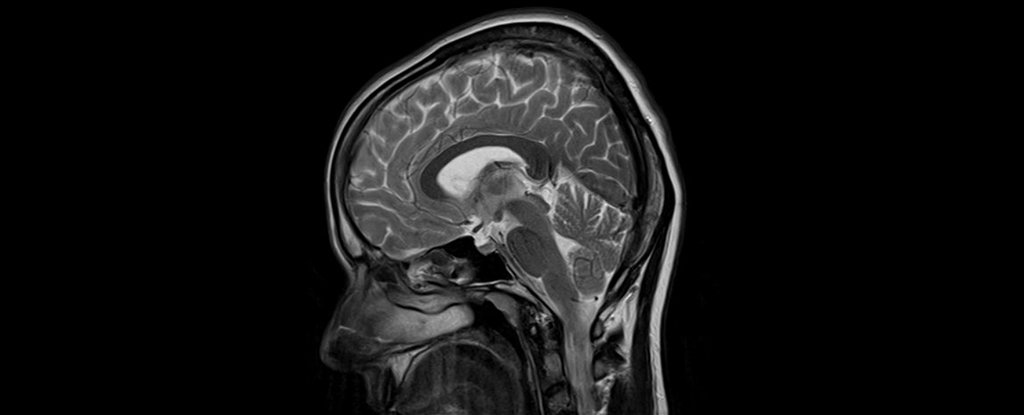A small, seahorse-sized area of the brain is responsible for most of our learning and memory.
Called the hippocampus, this area is key to many important brain functions, including turning short-term memories into long-term ones, regulating our emotions and making spatial navigation possible – essentially, our ability to plan where to go and how to get there.
As we get older, it’s normal for the hippocampus to shrink somewhat. But with certain health conditions, this volume loss is more rapid. Unsurprisingly, Alzheimer’s disease is one of these conditions.
Loss of volume in the hippocampus is often spotted early on in patients with Alzheimer’s disease – and this volume loss tends to precede signs of cognitive decline.
The presence of accumulated proteins in the brain – specifically the proteins amyloid beta and tau – have also been linked with cognitive decline in people with and without Alzheimer’s disease.
But a recent study published in Neurology, has shown shrinkage in the hippocampus causes cognitive decline regardless of whether a person has amyloid or tau in their brain. This finding could be important not only in treating Alzheimer’s disease, but other neurodegenerative conditions as well.
To conduct their study, researchers collected data from 128 older adults over a period of ten years. Participants had no signs of cognitive impairment at the beginning of the study.
The researchers collected data on how participants performed on cognitive tests throughout the study. They also took brain imaging scans to look at the volume of a participant’s hippocampus, and to track whether they developed other markers of cognitive issues in the brain – such as tau tangles and amyloid plaques.
Tau and beta-amyloid are both important proteins for good brain function. But in conditions such as Alzheimer’s disease, these proteins turn toxic and clump together. Tau tangles destroy neurons from the inside, while amyloid plaques clump on the outside of neurons.
They found that shrinkage in the hippocampus correlated with cognitive decline. This was true even when they removed the influence of the other two factors – tau and amyloid – from their analyses.
They also found that the faster this shrinkage occurred, the faster a person’s cognitive decline. And, the lower a person’s hippocampal volume at the start of the study, the faster the shrinkage.
Hippocampal volume
These results indicate there are at least two potential pathways that lead to cognitive decline in Alzheimer’s disease and dementia. One pathway is due to the accumulation of tau and amyloid in certain areas of the brain, while the other is due to loss of hippocampal volume.
These results also suggest that cognitive decline caused by shrinkage in the hippocampus may indicate the presence of another condition. The authors of the study suggest that looking at hippocampal volume could be a useful biomarker (sign of a disease) in diagnosing other conditions that affect cognitive decline.
They also suggest this discovery could be used to determine whether or not a person will benefit from drugs that slow the progression of Alzheimer’s disease. So if a person’s cognitive decline is mainly due to their hippocampus shrinking, drugs which target amyloid plaques will probably not have any effect.
The researchers do acknowledge, however, that after all their analyses, there is some variance in the results that can’t be explained. For instance, some participants had hippocampal shrinkage yet showed no signs of cognitive decline, while others had little volume loss and higher levels of cognitive decline.
They attribute this to factors such as lifestyle, genetics or other neuropathologies such as alpha-synuclein, which is involved in Parkinson’s disease and Lewy body dementia. This can’t be measured by focusing on the volume of the hippocampus.
They also acknowledge the fact that their data came from a population that’s not representative of the real world. Most of the participants were highly educated and white. Moreover, this was a group study, so individual differences – such as in genetics and lifestyle – were not investigated.
It will be important for future studies to investigate the link between hippocampal volume and cognitive decline in a more diverse, representative population.
Brain health
Alongside Alzheimer’s disease, a lower hippocampal volume has been observed in people with many other conditions – such as Cushing’s disease, depression, PTSD and anxiety.
Certain lifestyle habits can also worsen loss of hippocampus volume. For example, poor diet has been linked to a lower hippocampus volume, as has excess alcohol consumption – even in young people.
On the other hand, physical activity, including yoga, cardio and exercises which build balance and coordination, have all been shown to increase hippocampal volume in older people.
So while cognitive decline can happen for many reasons, taking care of your brain through good lifestyle habits may have a positive effect on your brain health and delay it.
This research shows that amyloid plaques and tau tangles aren’t the only triggers of cognitive decline. But they also show that the various triggers may act together or independently of each other.
Developing tests and markers that can determine where a person’s cognitive decline originates from should be a future research focus. As should work on treatments that target different factors leading to cognitive decline.
Eleftheria Kodosaki, Research Fellow in Neuroimmunology, UCL
This article is republished from The Conversation under a Creative Commons license. Read the original article.





